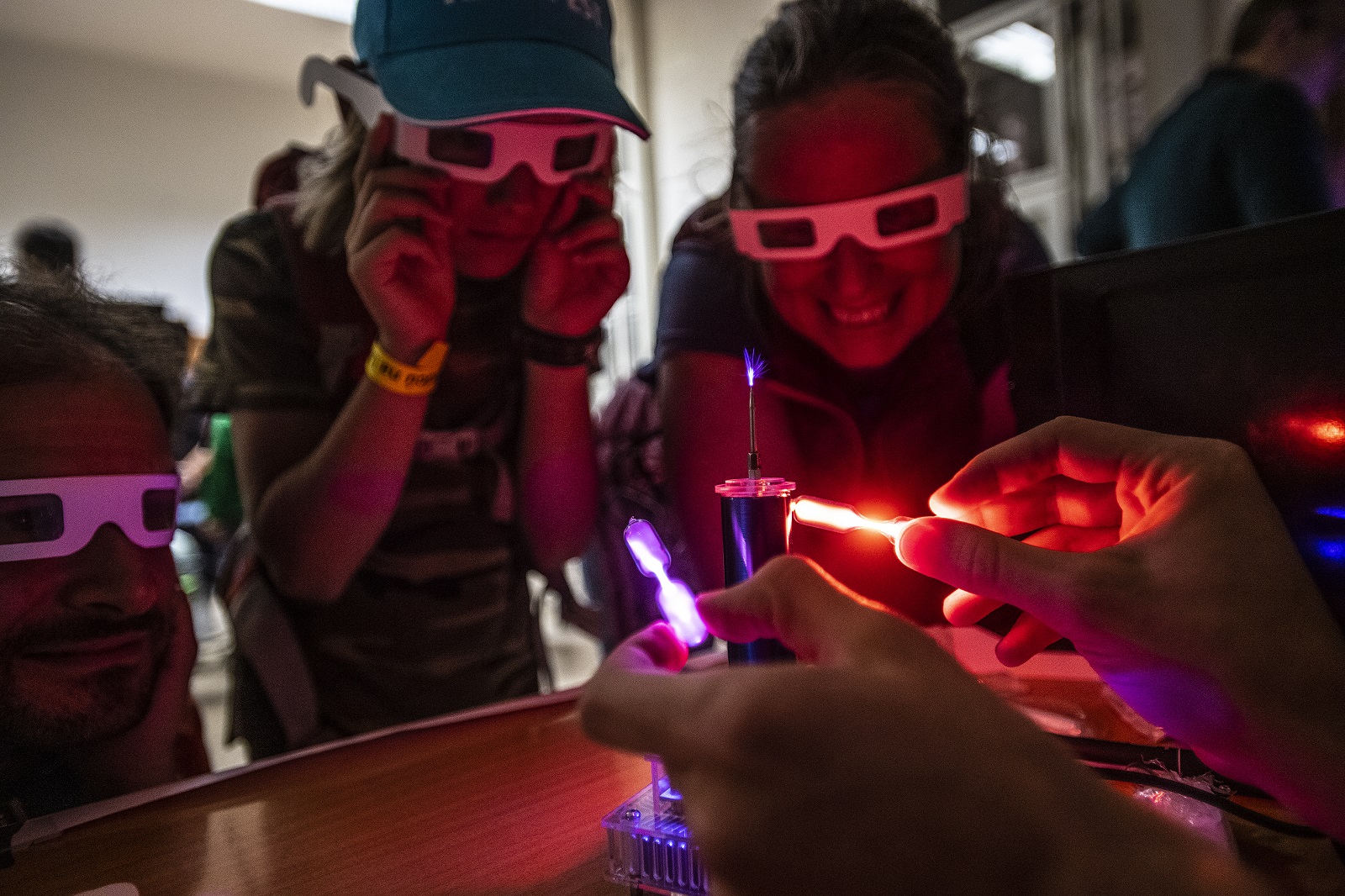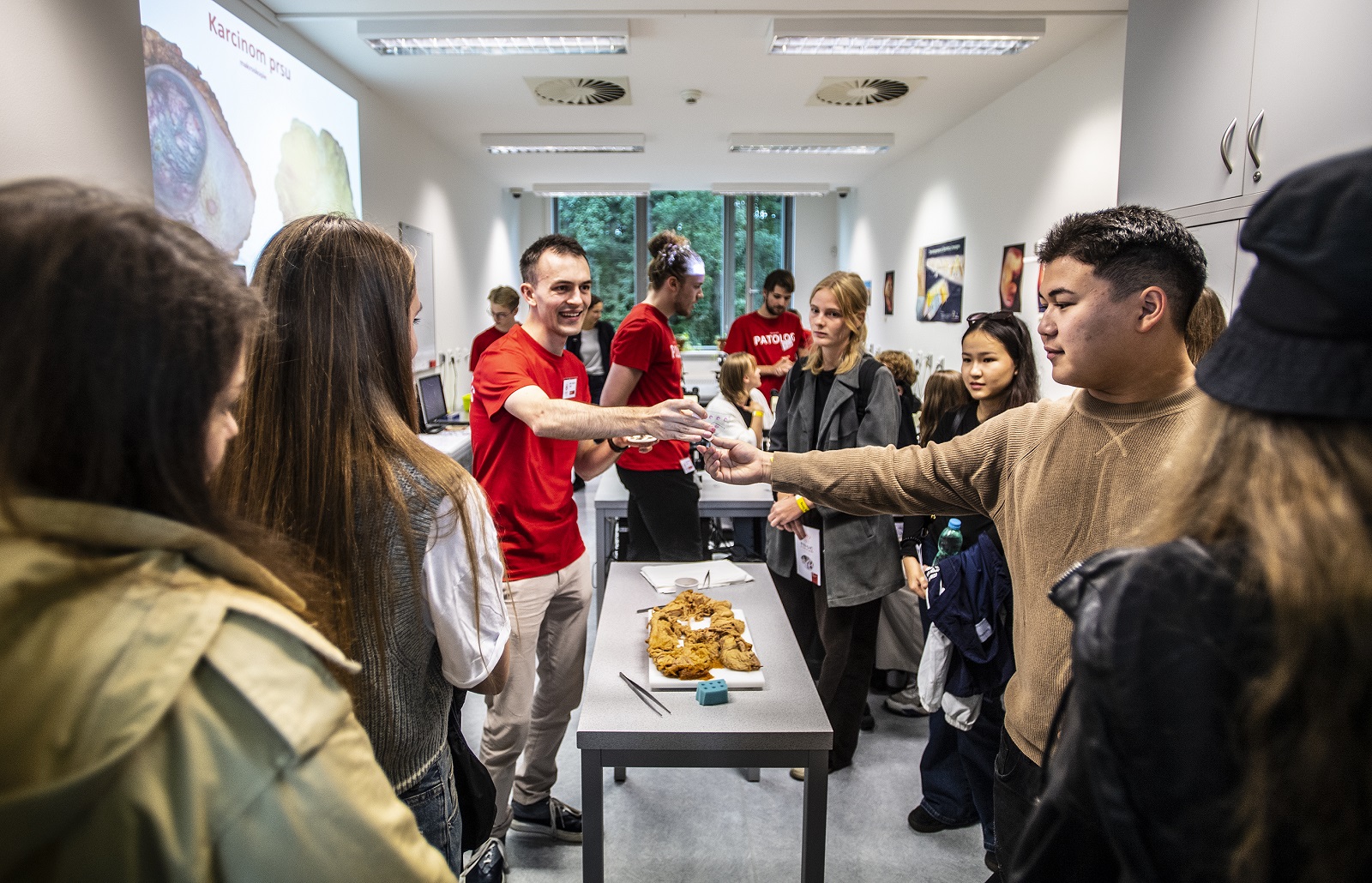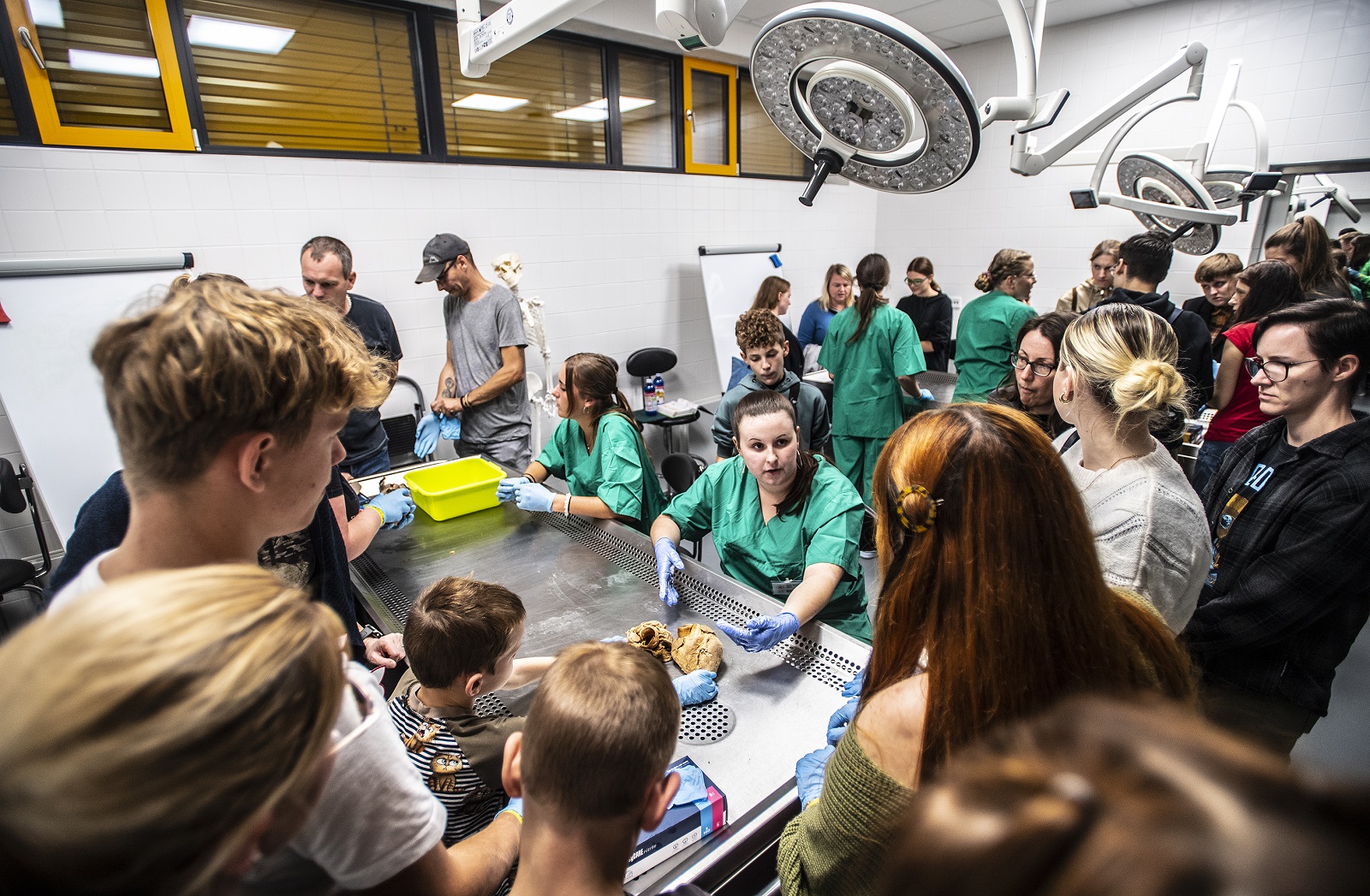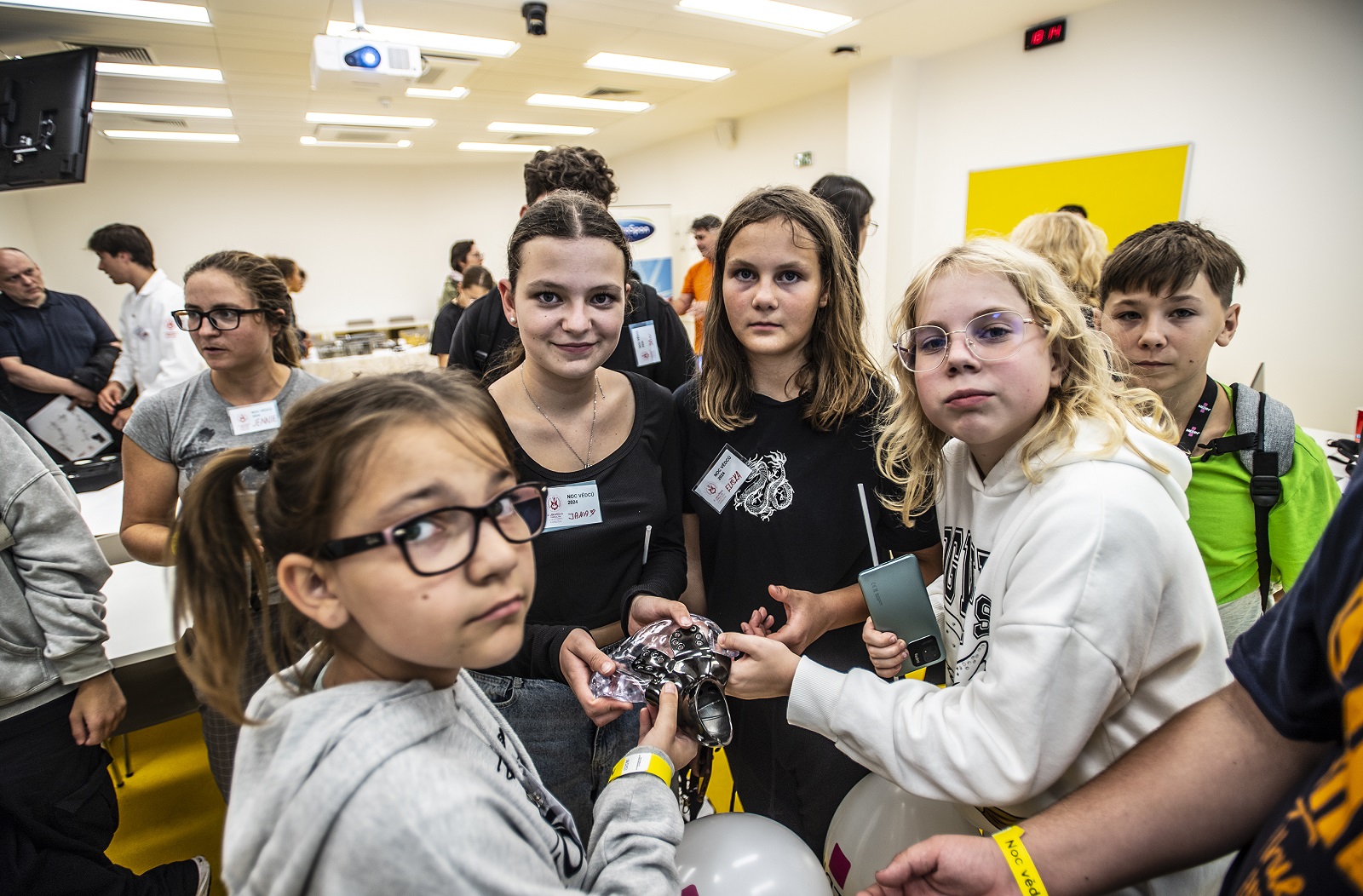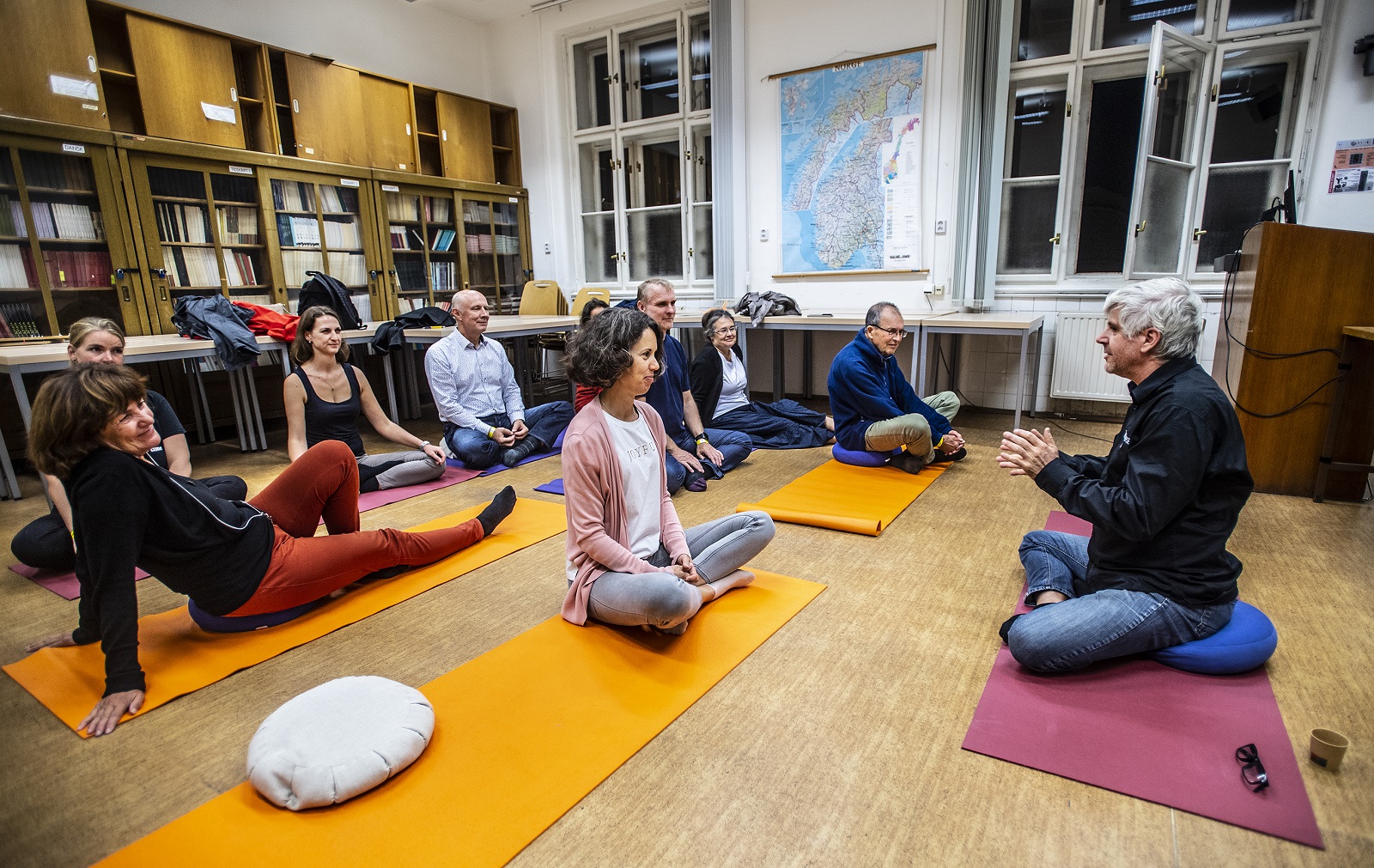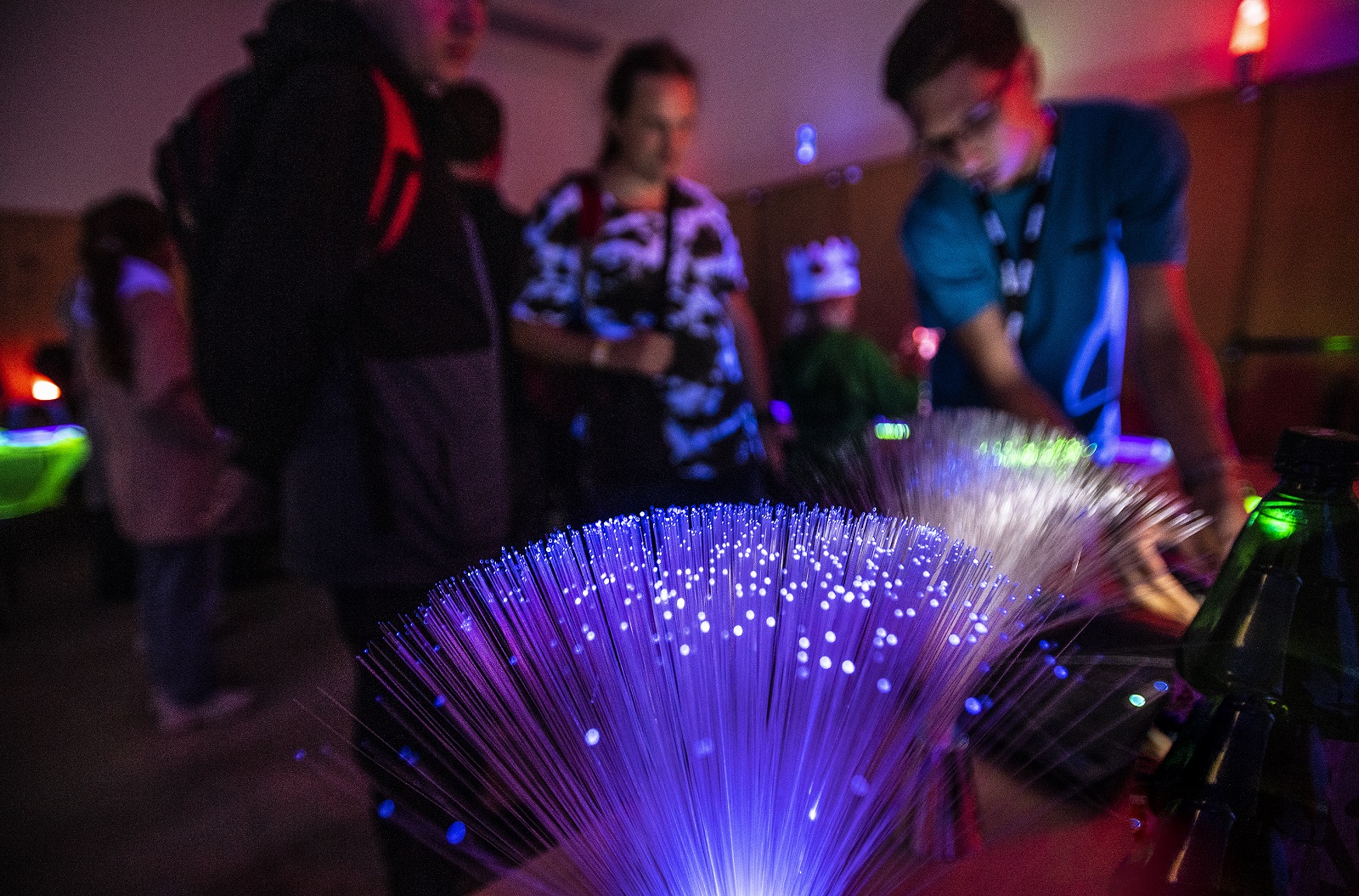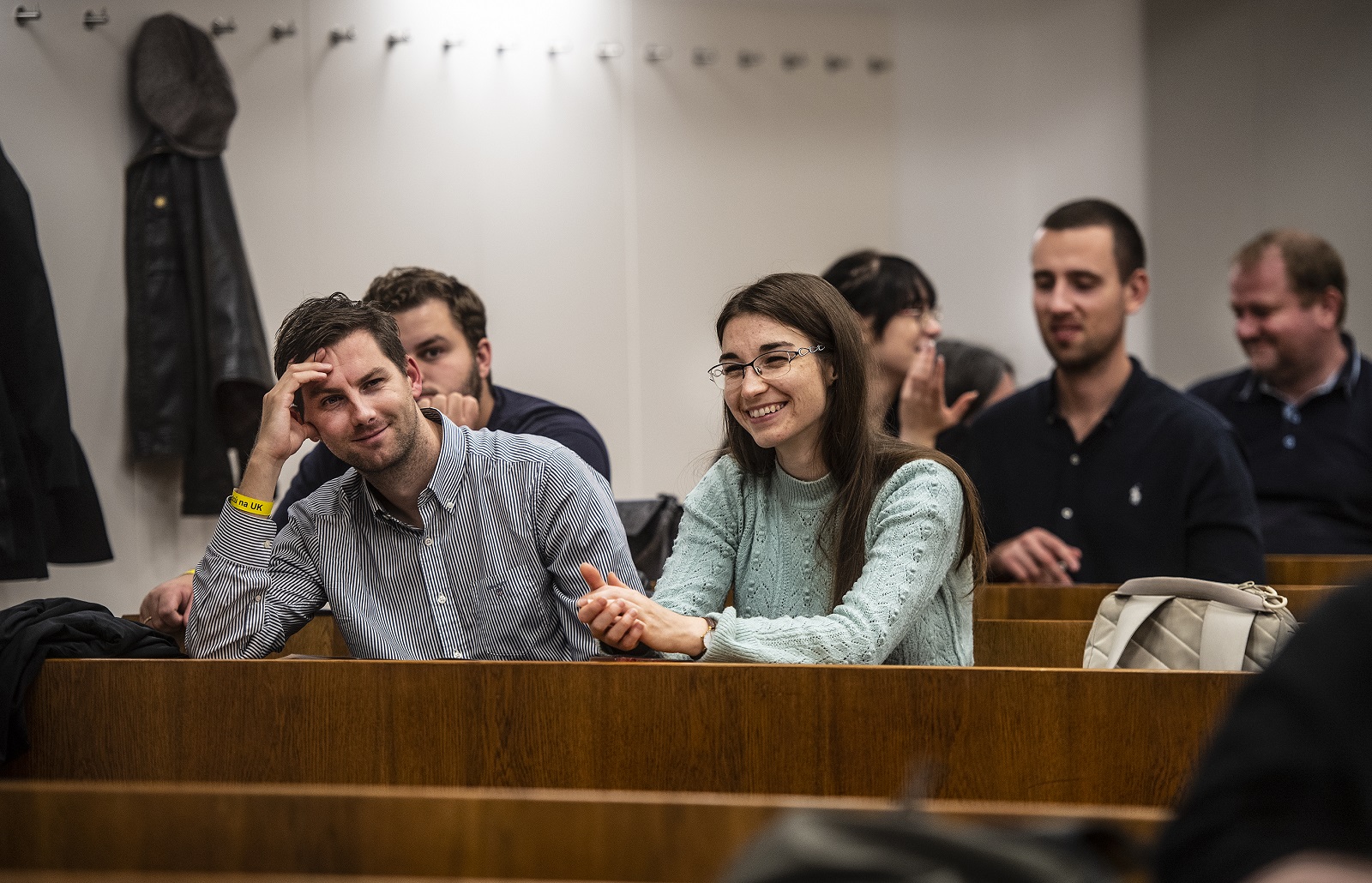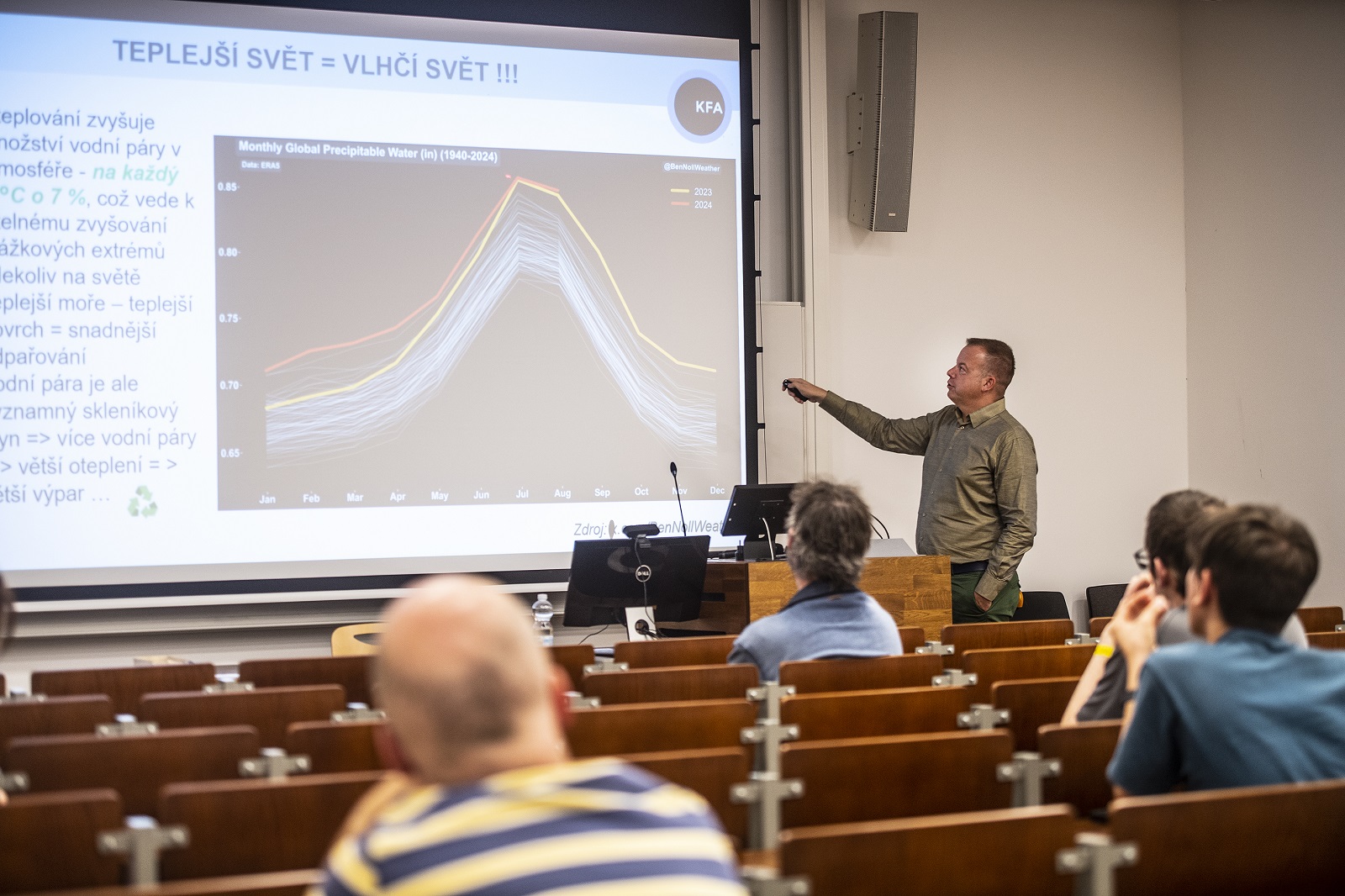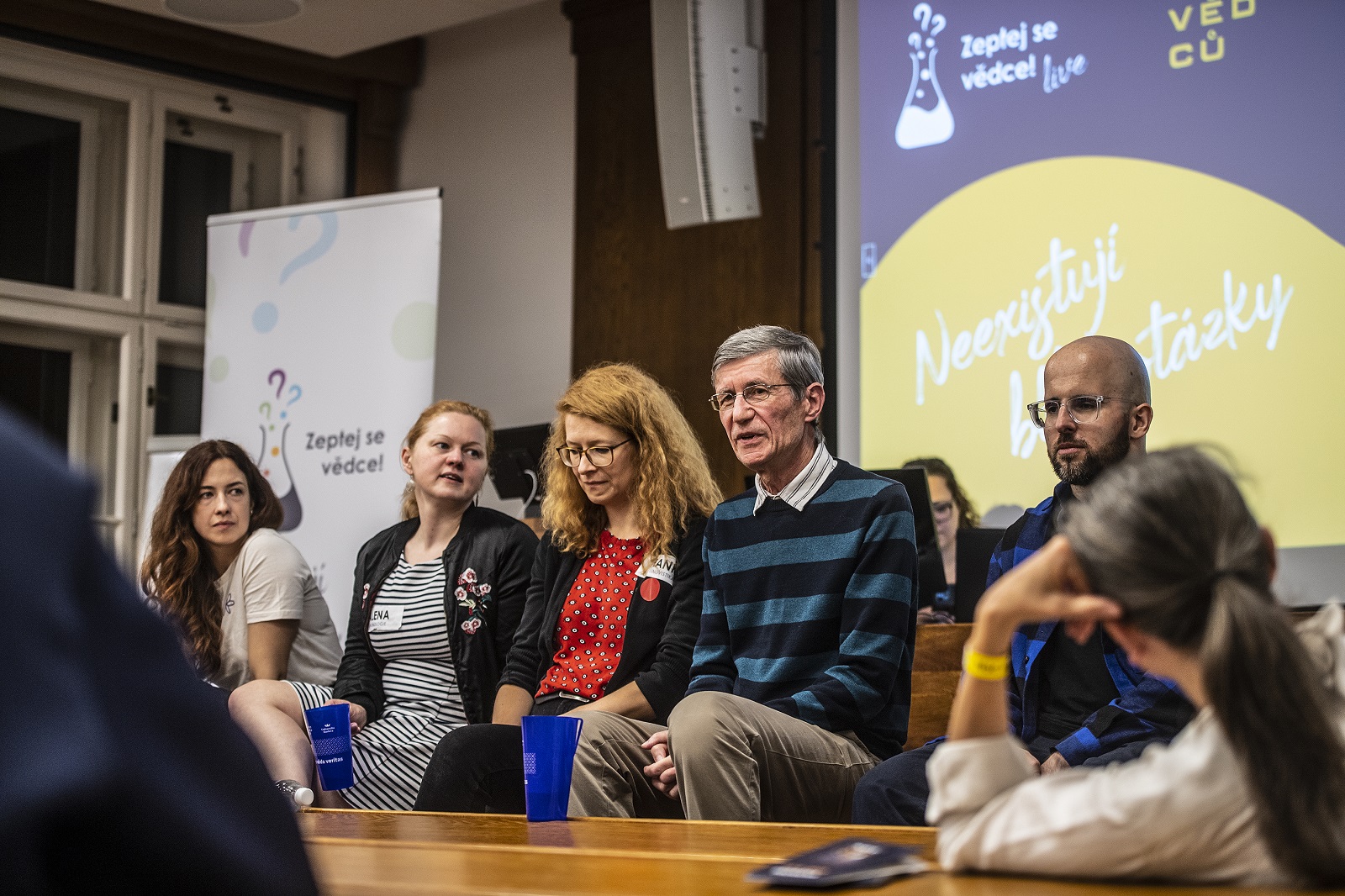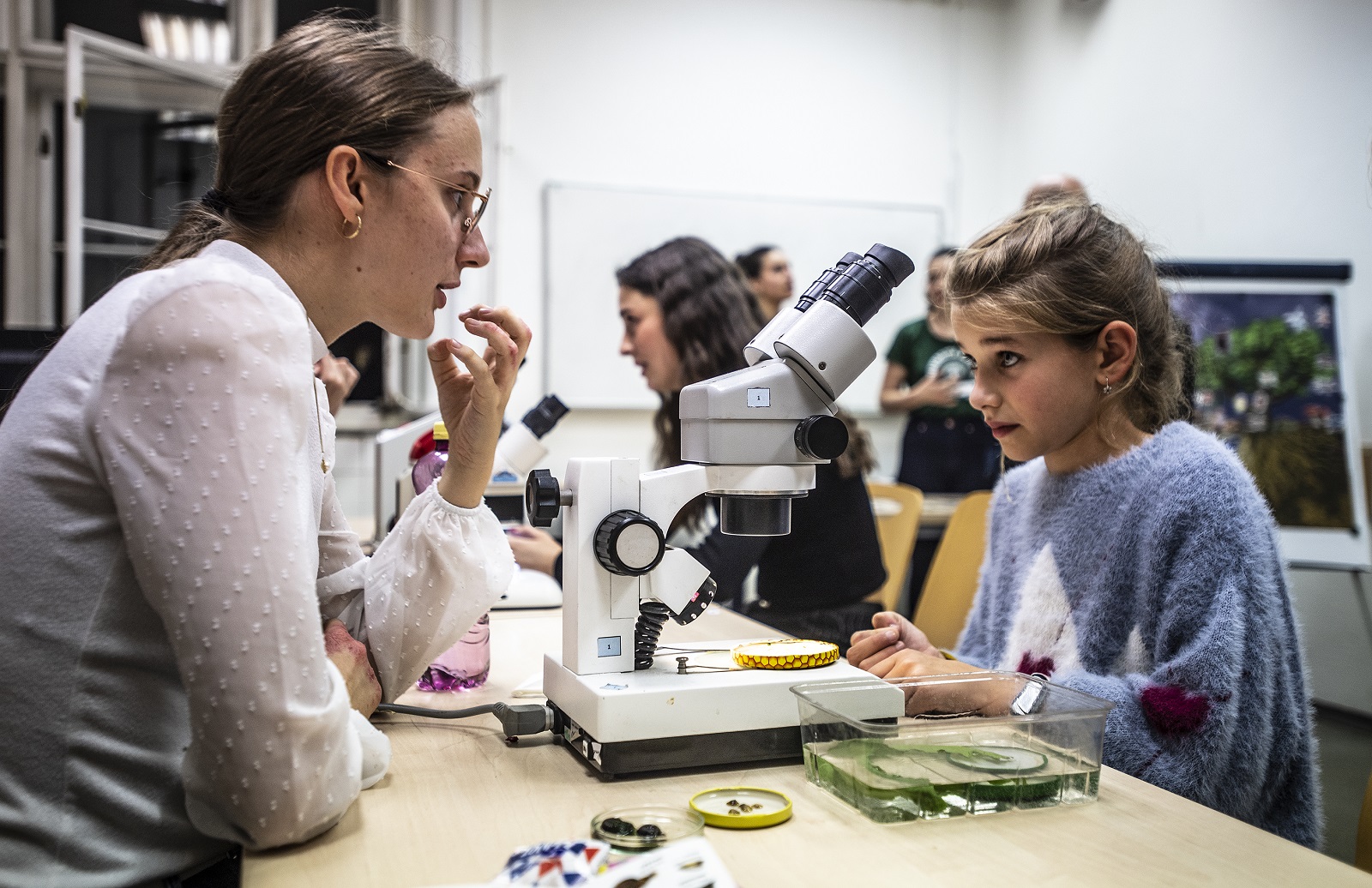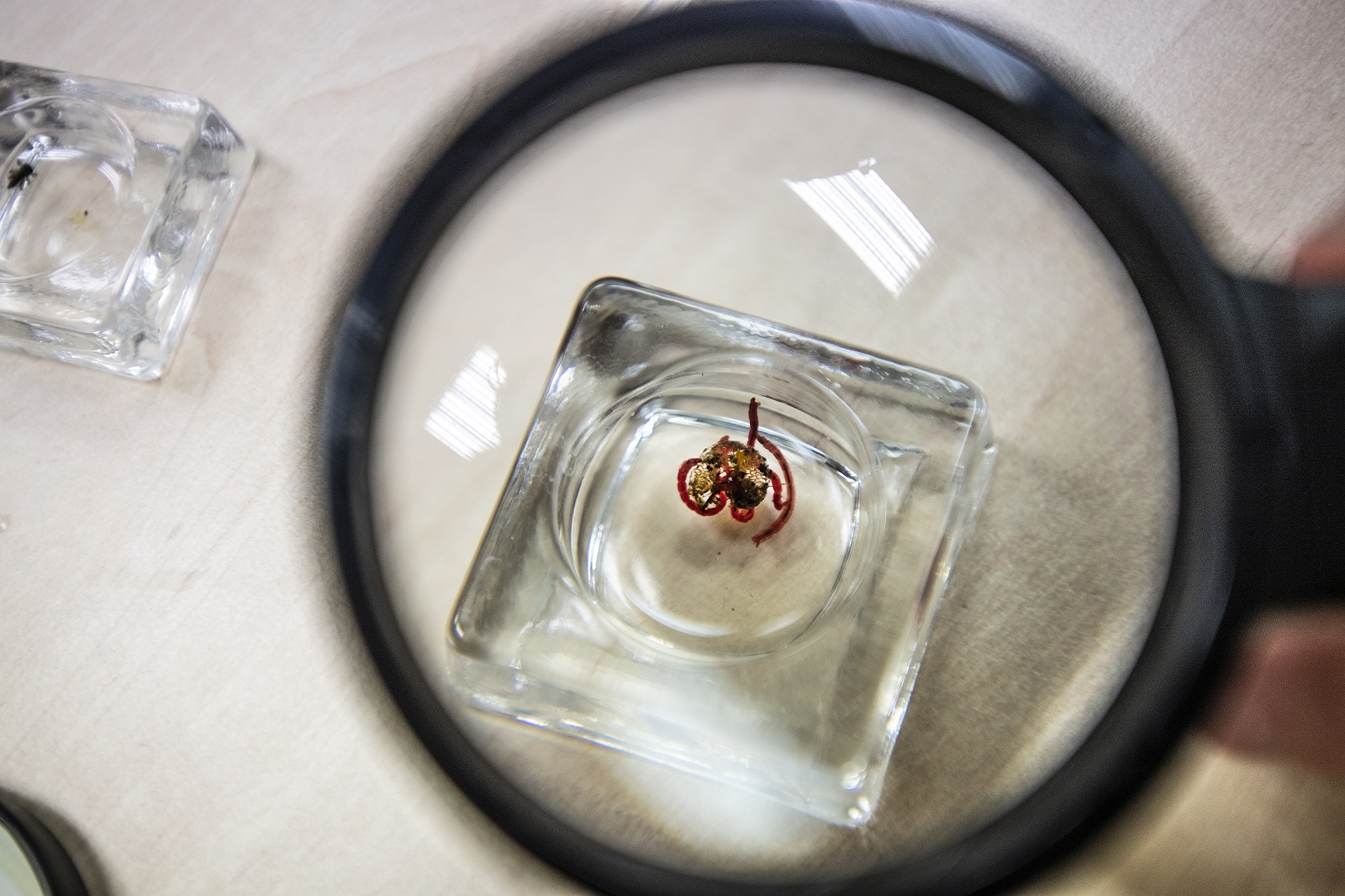The last Friday in September once again marked the traditional Czech European Researchers' Night, where scientific and educational institutions across the Czech Republic opened their doors to curious visitors, both young and old. Charles University, of course, participated, welcoming the public into five of its buildings in Prague and Hradec Králové. The central theme of this year’s event was "Transformation."
“Last year, we came to see if we could handle a dissection without feeling queasy. And this year? We’re back because we enjoyed it so much,” laugh three students from a secondary school focusing on health studies, taking advantage of the chance to visit the dissection rooms at the Second Faculty of Medicine’s Anatomy Institute in Motol. For a similar reason, 12-year-old Katya attended, eager to try her hand at surgical suturing, as she plans to become a doctor one day. “It might seem like a bit of fun – letting a child explore a virtual dissection table – but we took the opportunity seriously. When else would she get the chance to experience what a surgeon’s job really involves?” her mother explains. At the Second Faculty of Medicine, the theme of transformation included exploring the changes in the human body through modern technology and giving visitors the chance to take on the role of neurologists investigating epilepsy.
“For us, this is an absolutely phenomenal experience – the children have never been in such a scientific environment before,” says teacher Filip Kaas, who brought his class all the way from Karlovy Vary in western Bohemia. As part of the Marie Skłodowska-Curie Actions Metamorphosis project, universities organised and funded visits for pupils and teachers to experience the Czech European Researchers' Night first-hand. The group invited by Charles University had a close-up view of 3D-printed titanium implants. “We’re introducing the children and their teachers to the event, and we plan to continue cooperating with them. Our goal for 2025 is to organise a similar event at their school, which can then be attended by others from the Karlovy Vary region,” says Miroslav Čermák, head of Charles University’s marketing department at the rectorate.
The main programme of this year’s night of exciting scientific exploration at Charles University moved from the traditional location in Prague’s Albertov district to the Faculty of Arts – the perfect setting, as the theme of Transformation connects seamlessly with Franz Kafka’s work, whose centenary of death we commemorate this year. The evening’s programme, beginning at 5 p.m., featured dozens of lectures from the humanities, social sciences, as well as natural and medical sciences. It also included demonstrations of mummification, a phonetics lab, physics experiments, and the study of microscopic creatures who call ponds and puddles home.
“I’m a long-time participant in mathematical olympiads,” says secondary school student Lukáš, who attended a lecture titled "How Mathematicians Think and What They Work On" at the Faculty of Arts. “I’d like to study at the Faculty of Mathematics and Physics and maybe even teach one day,” he explains, taking diligent notes on the unconventional word problems that Dean Mirko Rokyta of the Faculty of Mathematics and Physics used to illustrate mathematical principles. “I love that feeling of accomplishment when I solve a new problem,” he adds with a smile. The Faculty of Mathematics and Physics also embraced the theme of Transformation, with Associate Dean for Public Relations and meteorologist Michal Žák discussing the changes in weather patterns due to climate change.
Meanwhile, Michaela Slussareff, Vice-Dean for External Relations and Lifelong Learning at the Faculty of Arts, along with Czech Radio host Martina Mašková, explored how to find happiness in everyday life beyond online games, videos, and social media. “Mobile phones are and will remain a part of our lives, and those of our children. To keep their use in check, it’s crucial to find other sources of dopamine besides digital technologies. Physical activity is ideal. We must become adept at marketing the offline world to our children,” Slussareff summarises. The popular "Ask a Scientist" event also took place, where a panel of researchers debated topics ranging from linguistics and pharmacy to ecology, based on questions from the audience.
The Didaktikon educational centre at Kampus Hybernská opened its doors to the youngest visitors from 3 p.m., allowing budding scientists to handle live insects, create a chemical garden, or craft their own glow-worms.
In Hradec Králové, the Faculty of Medicine showcased the pivotal role of pathology in modern medicine with interactive displays, practical activities, and captivating stories from history. Visitors could create a 3D model of their own tooth using digital dentistry techniques, and for those with an adventurous spirit, the faculty organised a scientific treasure hunt through the campus. The Faculty of Pharmacy allowed visitors to look ‘behind the curtain’ to see the process of drug development, from turning powder into tablets, to the technological advancements in pharmaceutical manufacturing, and offered a night-time tour of the tropical greenhouse in the Medicinal Plant Garden.


